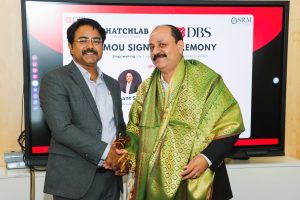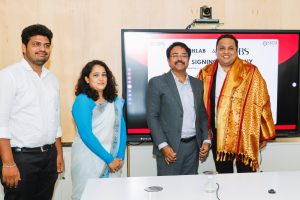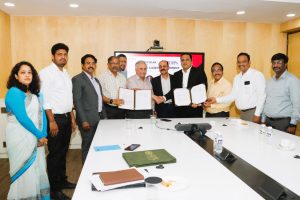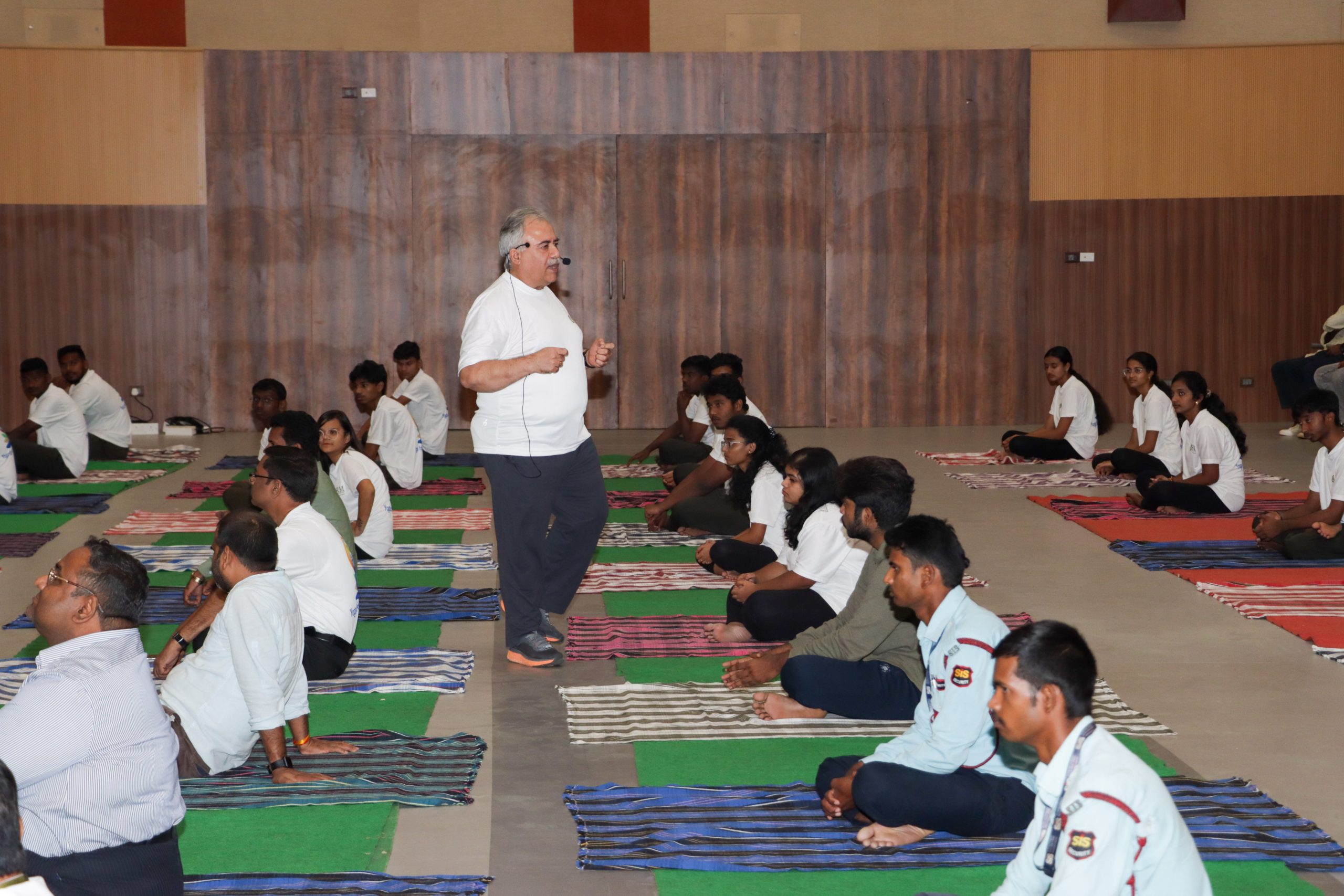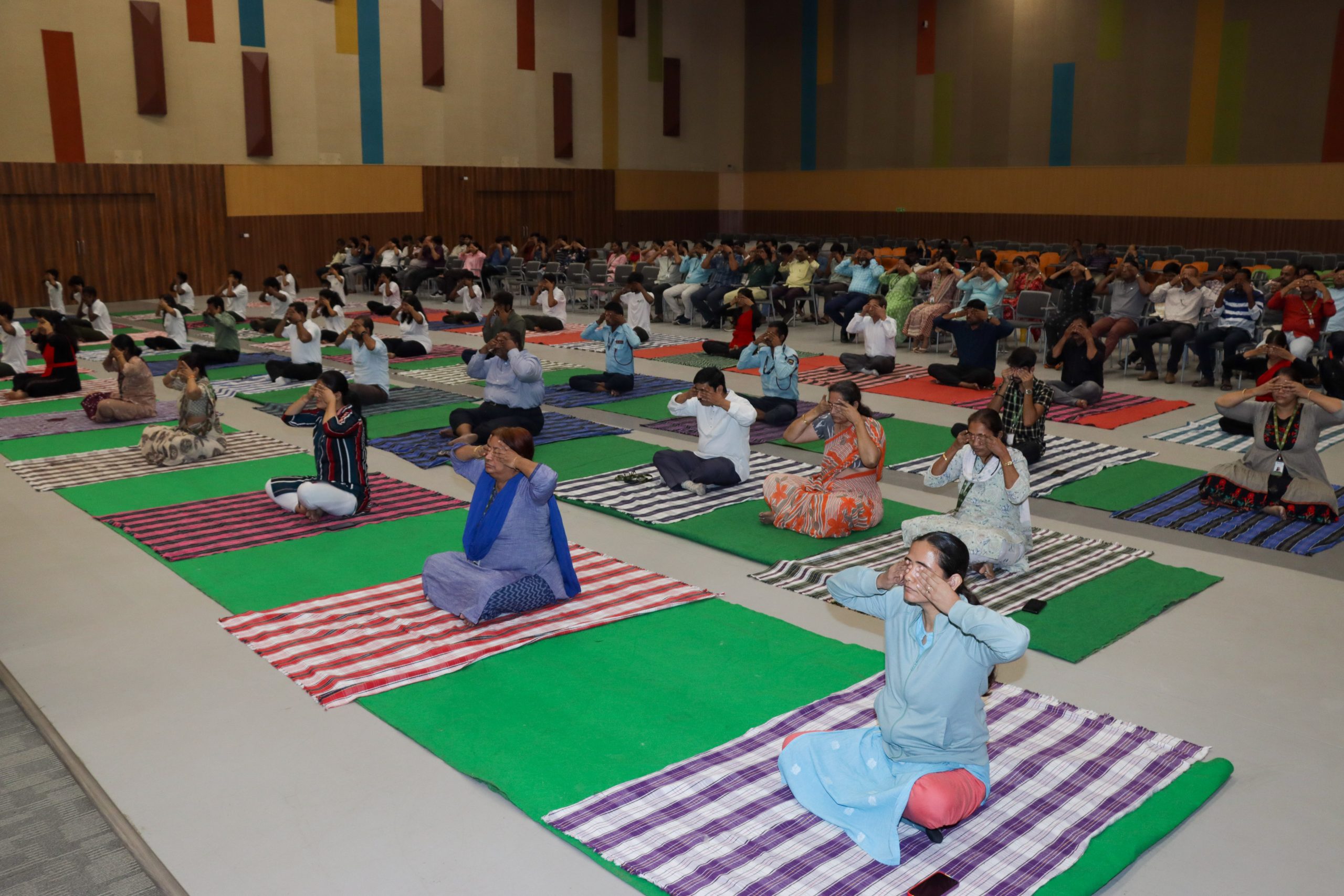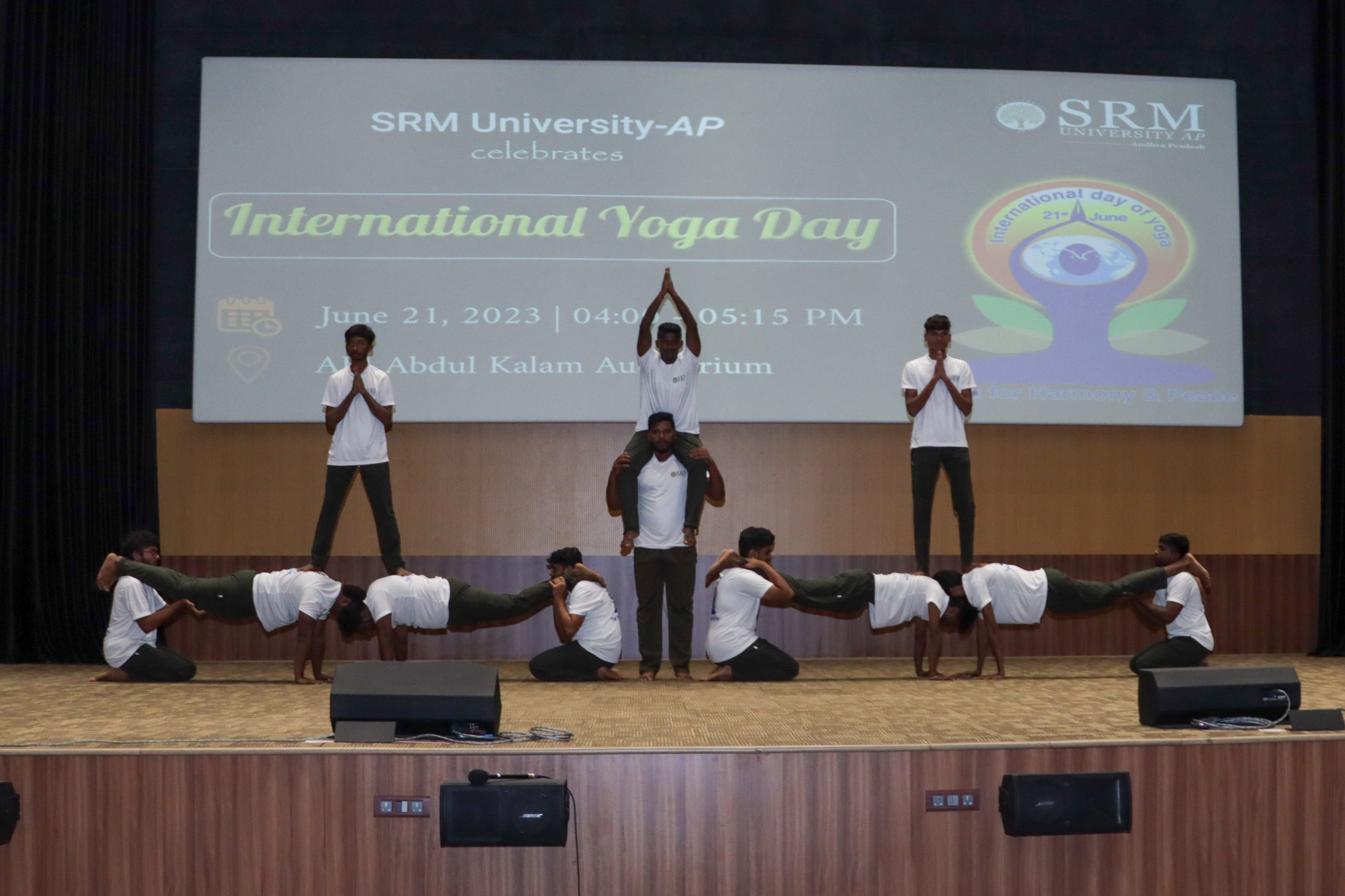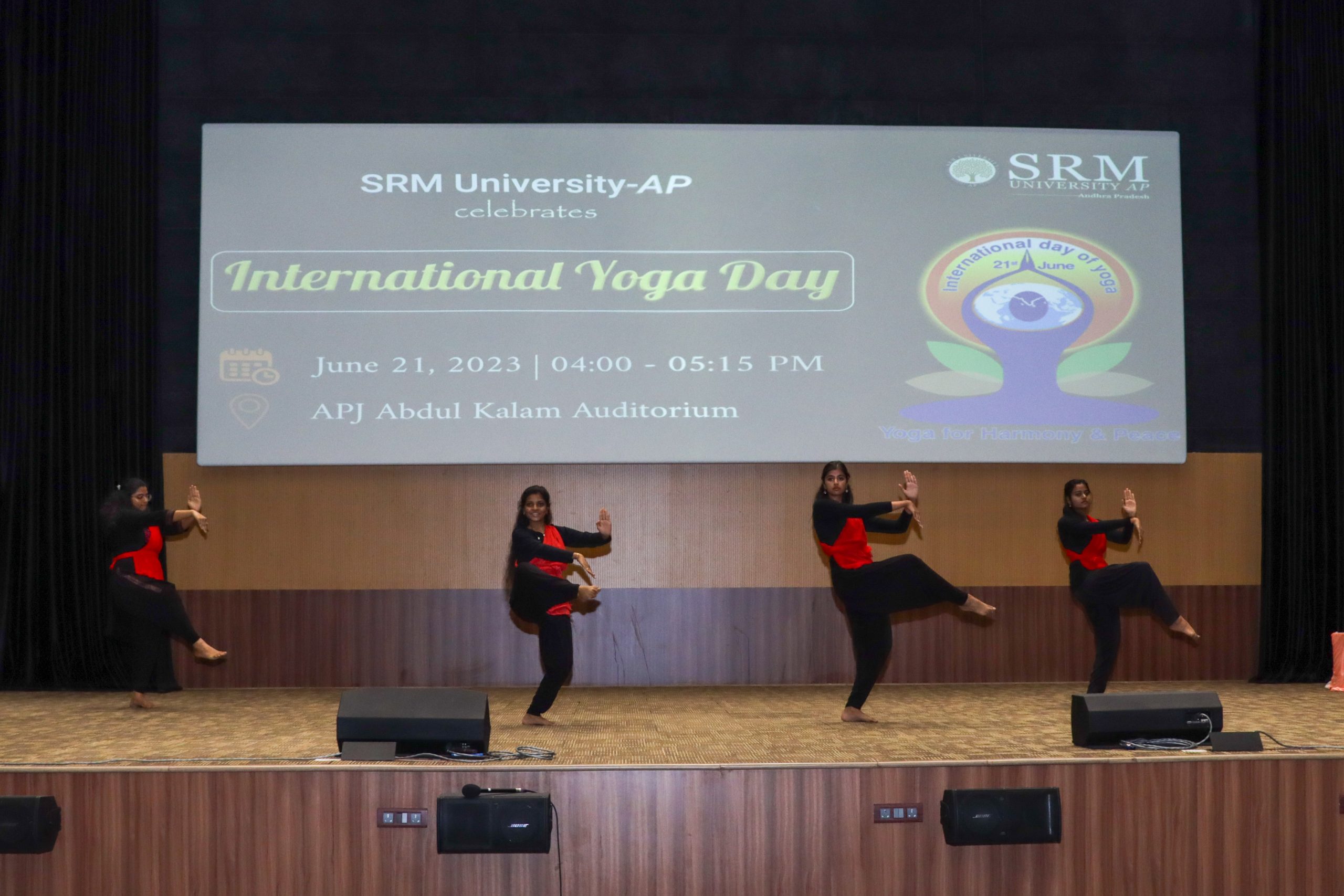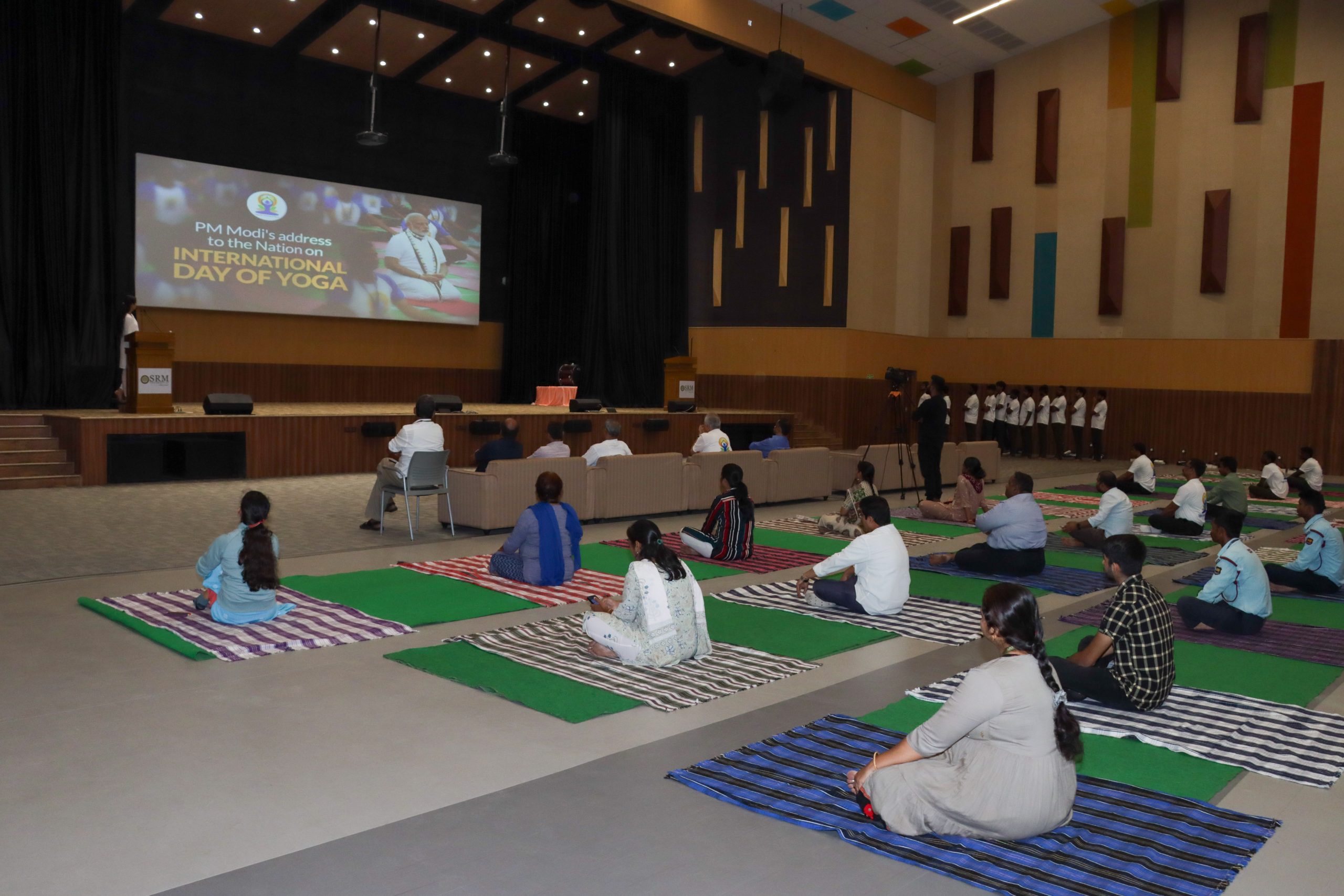All Management Events
- Dr Debabrata Senapati June 28, 2023
- World Environment Day Celebrations – An Initiative to Beat Plastic Pollution June 27, 2023
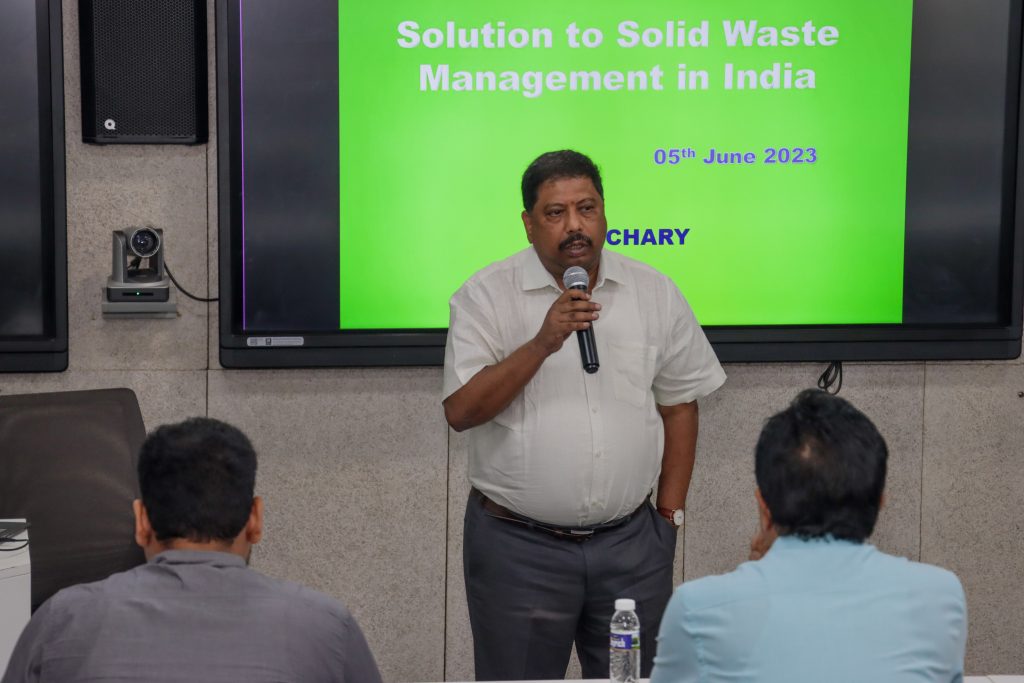
The Department of Environmental Science and Engineering celebrated World Environment Day on June 05, 2023, initiating awareness of the need to combat the climate crisis posed by global plastic pollution. The department organised two invited lectures from industry experts to expound on the theme of World Environment Day 2023, “Solutions to Plastic Pollution”. Efficient ways to tackle plastic pollution in the country and local waste management systems and policies were key points of discussion. Prof. K V Jayakumar, Professor, Department of Civil Engineering, National Institute of Technology, Warangal and Mr M V Chary, President, Jindal Urban Waste Management, Guntur, Andhra Pradesh, were the invited speakers.
Prof. K V Jayakumar lent thought-provoking insights into the types of water and how marketing strategies sell water at high prices to consumers. He also shared his experience of his visits to other countries in Europe and Asia where water is utilised wisely. Apart from water and plastic pollution, he also addressed the pressing issue of climate change happening over the years and the consequent increase in temperature. Prof. Jayakumar also suggested the book “Silent Spring” by Rachel Carson, which is often viewed as a landmark work of environmental writing, focusing on the harmful effects of pesticides on the environment.
Mr M V Chary shared in-depth information about the Jindal Urban Waste Management at Guntur, stating the various source of waste, collection points, transportation to the Jindal Waste – Energy Plant, and how waste is converted to energy (through incineration) at the plant. Unique aspects of the plant were also discussed at length, along with a video presentation demonstrating the complete working of the plant. The interactive session with Mr Chary, wherein he shared his expertise in the industrial sector, was beneficial for the students.
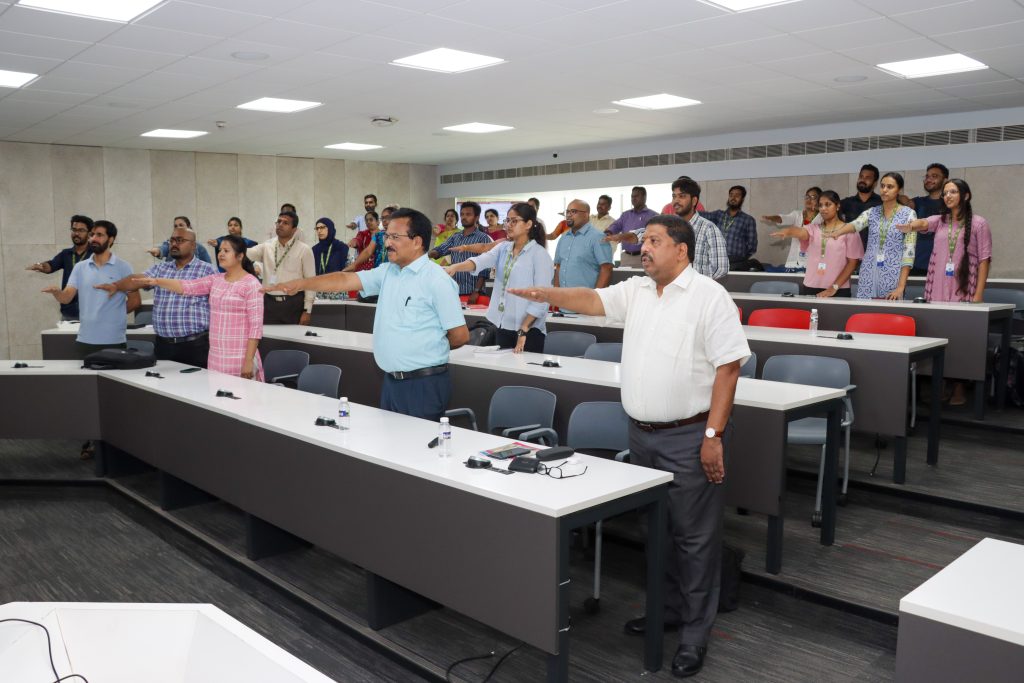
A pledge was taken by all participants at the end of the seminar emphasising the importance of saving the environment, sustainable resource management and the need of awareness among all in reducing the pollution as well as global warming and climate change.
Dr Karthik Rajendran, HOD of the Department, delivered the welcome address and the event witnessed an active participation of 85 participants which constitutes Professors, Faculty, PhD Scholars, Undergraduate students from various departments. There were also faculty and scholars from neighbouring colleges such as Acharya Nagarjuna University, Sidhartha Mahila Kalasala and Ministry of Culture, New Delhi.
Continue reading → - Dr Naresh Kumar Vemula June 26, 2023
- Physics Graduate Secures Two International Internships June 26, 2023
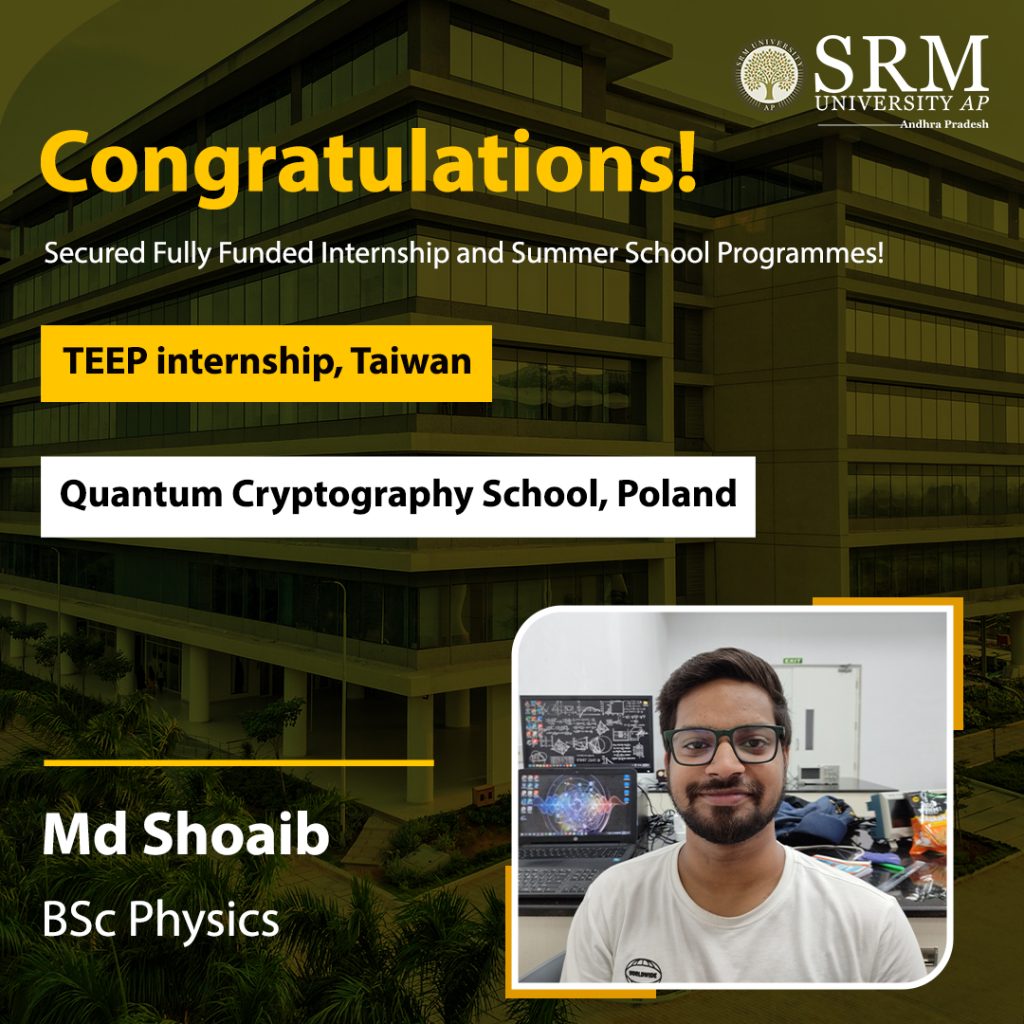
In an era where competition in the job market is on the peek, internships give you an edge over the rest of your peers. It gives you an opportunity to get real-time experience and put to practise what you have learnt. But not everyone manages to acquire an internship, while most students manage to barely secure a single internship, Md Shoaib, has bagged not one, but two exciting international internships in the field of Quantum Physics!
Here’s what Md Shoaib has to say on his remarkable achievement: “ I am excited to delve deeper into this topic and participate in enriching lectures, workshops, and interactions with experts in the field. It will be a valuable experience to learn from renowned Quantum scientists from various countries and broaden my understanding of Quantum Cryptography.”
Md Shoaib, a BSc Physics (Hons) with Research student has secured the prestigious Taiwan Experience Education Program (TEEP) internship programme along with a Summer School “Quantum Cryptography” internship offered by the University of Gdańsk, Poland. The internships not only offer a stipend but also covers travel, accommodation and logistic expenses.
We wish Md Shoaib the very best in his endeavour!
- Specialise in the Latest Tech with an MTech in Computer Science and Engineering June 26, 2023
With the advent of advanced technologies and innovations in the area of computer science and engineering, pursuing an MTech in Computer Science and Engineering has become a highly coveted career choice for students. An MTech degree in Computer Science and Engineering equips students with an extensive understanding of advanced computer concepts, including algorithms, machine learning, data structures, computer networks, and software engineering.
The MTech in Computer Science and Engineering curriculum is curated to provide individuals with hands-on experience in application development and computer programming, preparing them for a flourishing career in an array of industries, including artificial intelligence, software development, robotics, and cybersecurity. Furthermore, an MTech in Computer Science and Engineering also opens doors to endless opportunities for students to pursue research and development in leading-edge computer science disciplines.
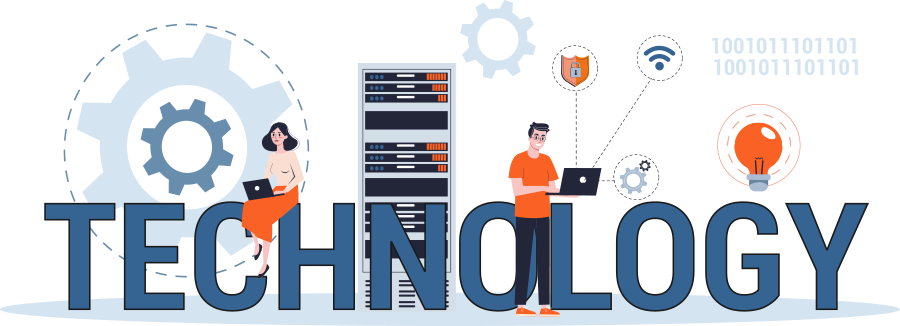
What is MTech Computer Science Curriculum?
The MTech Computer Science and Engineering curriculum varies from institute to institute. However, most programmes incorporate a core set of courses that includes advanced topics in computer science and engineering. The MTech in Computer Science and Engineering syllabus typically incorporates a wide range of advanced subjects such as:
- Data Structures and Algorithms
- Operating Systems
- Computer Networks
- Software Engineering
- Artificial Intelligence
- Machine Learning
- Natural Language Processing
- Cybersecurity and Cryptography
- Distributed Systems
- Cloud Computing
- Robotics
These MTech in Computer Science subjects are curated to provide students with a rigid foundation in the area of computer science and engineering. In addition to the core courses, MTech Computer Science students also have the opportunity to specialise in a specific area of the domain through electives and research projects. These specialisations can include areas like robotics, distributed systems, cybersecurity, computer vision, and natural language processing.
Some MTech Computer Science curricula also require individuals to complete a research project or thesis, which enables them to use their knowledge and skills to solve a real-world problem in the domain.
What is MTech Computer Science Eligibility?
The MTech Computer Science eligibility depends on the institution offering the programme. Every institute has some general eligibility criteria for admission into its MTech Computer Science and Engineering programme. However, some common MTech Computer Science and Engineering eligibility criteria are as follows:
- The applicants must have completed a BTech degree in Computer Science and Engineering or a related discipline from a recognized institution.
- The applicant must have acquired a minimum of 50-60% aggregate marks in their undergraduate degree.
- Some institutes may also require applicants to have a valid GATE score in Computer Science and Engineering. Some institutes conduct their own entrance exam and require individuals to appear for them.
Stand Out in the Job Market with a World-class MTech in Computer Science and Engineering at SRM University-AP
SRM University-AP imparts top-notch MTech Computer Science and Engineering programme with a specialisation in emerging areas, including Artificial Intelligence & Machine Learning. The MTech Computer Science and Engineering curriculum at SRM AP is structured keeping in mind the need of the hour of the industry. The MTech graduates from SRM AP are eligible to either choose to work in the biggest giants of the industry or choose to pursue a PhD from a technical Institute of international repute. The courses of the programme are taught by highly qualified and skilled faculty who have overseas exposure to teaching and research.
MTech in Computer Science and Engineering specializations offered at SRM AP:
- Artificial Intelligence & Machine Learning
- Data Science
- Cyber Security
Moreover, the M.Tech. in Computer Science and Engineering eligibility at SRM AP requires students to have a basic degree or equivalent in BE / BTech in CSE / IT / SWE (or) MSc (CSE / IT) (or) MCA with GATE and a minimum of 60% aggregate marks.
To Conclude
MTech Computer Science and Engineering is ideal for individuals who want to enhance their technical skills and advance their careers. The programme assists them in specializing in an area of their choice, builds a strong foundation in advanced computer science and engineering topics, and offers promising opportunities to work with leading-edge technology. Pursuing an MTech degree in Computer Science and Engineering can provide you with a competitive edge in the job market and lead to enormous job roles and career growth.
Continue reading → - Shape the Future of Tech with BTech Computer Science and Engineering June 26, 2023
Living in the most populated country requires consistent innovation for betterment. Innovation requires innovative Computer Science Engineers. It is undeniable that Computer Science Engineers are highly in demand amid this tech-savvy era. Therefore becoming a Computer Science Engineer would be the wisest decision for a person. To become a Computer Science Engineer, one must pursue BTech in Computer Science and Engineering. Let us know first what BTech Computer Science and Engineering is.
BTech Computer Science and Engineering is an undergraduate course concentrating on developing skills in computer system technologies and programming terminology. The syllabus of BTech CSE is designed to provide comprehensive 21st-century skills like computer programming, computer application, research and development, analytics, data structure, etc. Let us discuss the BTech CSE syllabus in detail.

BTech Computer Science and Engineering is one of the most demanded courses in the country as the BTech CSE subjects taught during the course impart and enhance industry-relevant skills among students so that they become highly knowledgeable, skilled graduates who can work anywhere in the world. Some of the major subjects taught during BTech CSE are:
- Software Engineering
- Artificial Intelligence
- Computers and Information Technology
- Database Information System
- Applied Physics
Any course is lucrative only when its scope is wide and prosperous. BTech in Computer Science and Engineering is a popular course as its scope is wide and magnificent in monetary terms. As per the reports, the salary package of a BTech Computer Science Engineer is much higher than any other graduate courses. Some of the best career options available for computer science engineers are:
- Software Engineer
- Data Engineer
- Software Architect
- E-commerce Business Analyst
- Full-stack Developer
- Computer Hardware Engineer
- Network Engineer
- Computer Scientist
By now, it has been established that BTech Computer Science and Engineering is a widely popular course among young aspirants. The benefits of being a computer science engineer are quite prosperous when they have a name of a good university with them. Pursuing a creditable course is important, but pursuing that course from a renowned university is equally important to get celebrated perks. One of the most renowned universities, especially for providing world-class education, is SRM University-AP.
Step Into the Digital World with BTech in Computer Science and Engineering at SRM University-AP
SRM University-AP, falls under the top-ranking universities in India. The University aims to create and impart knowledge and bring forth a unique learning experience to its students who become technologically advanced and efficient resources to society. The Department of Computer Science and Engineering at SRM AP strives to contribute to this tech revolution by transforming its students into savvy professionals with firm know-how of state-of-the-art software and hardware mechanisms.
BTech in Computer Science and Engineering is the University’s most coveted programme as the Department of CSE provides research-based education and follows an Active-learning pedagogy to improve the quality of the learning experience for the students. The University has installed state-of-the-art laboratories to encourage students to carry out projects of multidisciplinary nature. It gives students opportunities to get international exposure in reputed foreign institutes like Northeastern University, Flinder University, the University of Wisconsin-Madison, Asia University etc.
BTech CSE SRM University-AP covers various computer software and hardware topics and is taught by highly experienced faculty members. Some specialisations offered under the course are:
- Artificial Intelligence and Machine Learning
- Internet of Things (IoT)
- Big Data Analytics
- Cyber Security
- Distributed and Cloud Computing
Overall, BTech CSE students at SRM AP are given high-quality research-oriented education that will shape them to succeed in the modern, developing technological world.
Be Future-ready with BTech CSE
BTech Computer Science and Engineering is dandy among young scholars. It provides all the 21st-century technological skills that make students efficient and skilful who are dexterous and capable of working for newly developed and developing organisations. The scope of BTech CSE is wide and offers graduates a safe and secure future.
SRM University-AP aims to provide world-class education to its students by providing highly-qualified faculty and a world-class curriculum. The University thrives in helping its graduates through the teaching-learning process at the time of placement and even after that so that the students always get constant support from the University. So what are you waiting for? Enrol in the BTech CSE programme at SRM AP and secure your future with constant growth.
Continue reading → - From Aspiring to Achieving: How an MBA Programme Can Help You Reach Your Goals June 26, 2023
MBA is one of the most widely pursued and coveted management degree programmes in the world that is curated to equip students with modern knowledge and skills in business management, leadership, and entrepreneurship. MBA programmes are offered by various institutes and business schools across the globe.
MBA graduates are well-equipped with the skills required to excel in their careers, whether they seek to pursue a leadership role in an organisation, start their own venture, or become a consultant. However, before finalising the course, students must explore different MBA courses and should acquire MBA course details.

In this article, we will explore the MBA course details, including the MBA curriculum, eligibility, and career prospects, so that you can get a comprehensive outlook of the MBA programme in India and make an informed decision accordingly.
What is the MBA Course Curriculum?
The MBA curriculum typically incorporates a broad range of business-related topics. At the beginning of the programme, students are generally taught foundational courses that equip them with a comprehensive overview of business practices and principles. Here is an MBA subjects list that incorporates some of the important subjects:
- Accounting and Financial Management
- Organisational Behavior and Leadership
- Marketing Management
- Business Strategy and Policy
- Operations Management and Supply Chain Management
- Human Resource Management
- Entrepreneurship and Innovation
- Business Ethics and Corporate Governance
- Information Technology and E-Business
- International Business
As individuals progress through the course, they can specialise in a particular area of their interest. In addition to the coursework, an MBA also incorporates experiential learning opportunities, including internships, case studies, and consulting projects. Many MBA courses in India also impart networking opportunities with industry professionals and alumni.
What Are the MBA Eligibility Criteria?
The eligibility criteria for MBA programmes may depend on the institution offering the programme. Therefore, applicants should refer to the admission requirement guidelines set by the respective institution. Moreover, some common MBA eligibility criteria require applicants to have the following:
- A bachelor’s degree in any discipline from a reputed institute or university.
- A minimum aggregate of 50% score in their bachelor’s degree.
- Qualifying scores in state-level or national MBA entrance exams, including CAT, MAT, GMAT, XAT, etc.
- Proficiency in the English language can be tested through exams like TOEFL or IELTS for international students.
What Are the Career Prospects of an MBA?
An MBA programme in India opens up a wide array of career opportunities, including executive-level management positions in multiple industries. Graduates can pursue careers in multinational corporations, government agencies, startups, and non-profit organisations and even launch their own ventures. Here are some promising career opportunities that MBA graduates can pursue:
- Management Consultant
- Investment Banker
- Human Resource Manager
- Operations Manager
- Business Development Manager
- Entrepreneur
- Supply Chain Manager
- Risk Manager
- Data Analyst
- Project Manager
- Product Manager
- Business Analyst
- Management Accountant
Shape Your Management Career with an MBA at SRM University-AP
With the latest operating paradigms and business models continuously emerging, the business world today has become dynamic. The Paari School of Business at SRM University-AP has redesigned and revamped its MBA curriculum in response to these varying needs. The new MBA curriculum at SRM University-AP is as follows:
- Immersive
- Experiential
- Innovative
- Community-focused
- Highly industry-focused
- Focused on holistic development
Paari School of Business at SRM University-AP offers various specialisations that are highly in demand in the job market. The Specialisations offered include:
- Human Resources Management
- Marketing
- Finance
- Business Analytics
- Family Business
- Operations and Logistics Management
The restructured MBA curriculum at SRM University-AP will go a long way in meeting student objectives and catering to industry demands. The curriculum also offers a range of elective courses to choose from in specialisations like Finance, Marketing, Operations, HR and Analytics.
The new curriculum is specially curated to prepare students to hit the ground running when they work in renowned organisations after graduation. As a result, the track record of SRM University-AP MBA placements is outstanding. The highest SRM University-AP MBA placement package for the academic year 2021-2022 stood at INR 31 LPA.
Wrapping Up
Pursuing an MBA can land you a plethora of career opportunities, enhance your skills and knowledge, and provide you with a platform for personal and professional growth. Therefore, it is a valuable investment for individuals seeking to make a mark in the business world.
Continue reading → - Join the Next Generation of Business Leaders with a BBA Programme June 26, 2023
In today’s dynamic and competitive business landscape, the demand for qualified and skilled professionals possessing a BBA degree is on the surge. Recruiters are seeking graduates with strong business acumen, problem-solving skills, critical thinking, and effective communication abilities. Our BBA programme equips you with the vital knowledge and the above skills to fulfil these demands and provides a competitive edge in the world of business.
A BBA is highly sought after by prospective students seeking to pursue a career in business or management. This undergraduate degree programme equips students with a detailed understanding of core business concepts, including finance, accounting, human resources, marketing, and operations management.

The following article will take you to the comprehensive BBA Honours course details, exploring its curriculum, syllabus, specialisations, and promising career opportunities available for graduates. Therefore, this article is a must-read for individuals interested in the world of business and management.
What is the BBA Curriculum?
The BBA curriculum typically includes courses designed to provide individuals with a solid foundation in business fundamentals. The exact BBA syllabus may depend on the institute offering the programme, but commonly the curriculum includes core subjects. Here are some of the core subjects included in the BBA course syllabus:
- Accounting Principles
- Marketing Management
- Human Resource Management
- Business Ethics
- Organisational Behavior
- Corporate Finance
- Strategic Management
- Business Law
- Business Statistics
- Leadership and Team Management
- Project Management
In addition to the above-mentioned core courses, students have the opportunity to specialise in a particular area of their interest, like entrepreneurship, international business, or supply chain management.
The BBA course syllabus is curated to develop essential skills in individuals, including problem-solving, critical thinking, communication, and leadership. Many BBA courses also offer experiential learning opportunities, like internships, case studies, and co-op placements, to provide individuals with real-world practical experience in the business world.
What Are the Career Opportunities After BBA?
The BBA course prepares students for a variety of career options in the business and management areas and provides them with the vital knowledge and skills essential to succeed in an ever-changing business landscape. The program graduates are well-equipped with a diverse skill set and knowledge that make them well-suited for numerous business and management-related roles across various industries. Here are some promising and lucrative career opportunities that BBA course graduates can pursue:
- Management Trainee
- Marketing Executive
- Financial Analyst
- Human Resource Executive
- Operations Executive
- Entrepreneur
- Sales Executive
- Business Analyst
Empower Your Business Mindset with a Top-notch BBA Programme at SRM University-AP
The BBA (Honours) programme offered at The Paari School of Business at SRM University-AP is typically a three-year programme. However, the university also allows students to go for the fourth year BBA (Honours by Research) degree, which paves the way for their aspirations to study a master’s degree abroad and is in accordance with the New Education Policy (NEP).
Additionally, the university provides its students with an option of a semester abroad (called the Semester Abroad Programme or SAP). Some of the international universities included in SAP are The Hebrew University of Jerusalem, the University of California (Berkely), the University of Dundee, Cyprus West University and Mahidol University.
SRM University-AP offers some cutting-edge specialisations in the BBA programme. These specialisations include:
- Human Resources Management
- Marketing
- Finance
- Family Business
- Business Analytics
Moreover, the BBA curriculum at SRM University-AP has been carefully revamped and overhauled in response to varying student and industry needs. The new BBA curriculum is more –
- Immersive
- Experiential
- Innovative
- Community-focused
- Research-oriented
- Entrepreneurship-focused
- Focused on holistic development
Further, the new BBA curriculum at SRM University-AP will go a long way in fulfilling student objectives.
To Conclude
Pursuing a BBA can lead you to career advancement, personal growth, and financial stability, making it a valuable treasure in one’s future. Whether you are a class 12th student or a working professional, a BBA degree is worth considering for individuals interested in the world of business and management.
Continue reading → - SRM University-AP Signs MoU with DBS Bank, India June 23, 2023
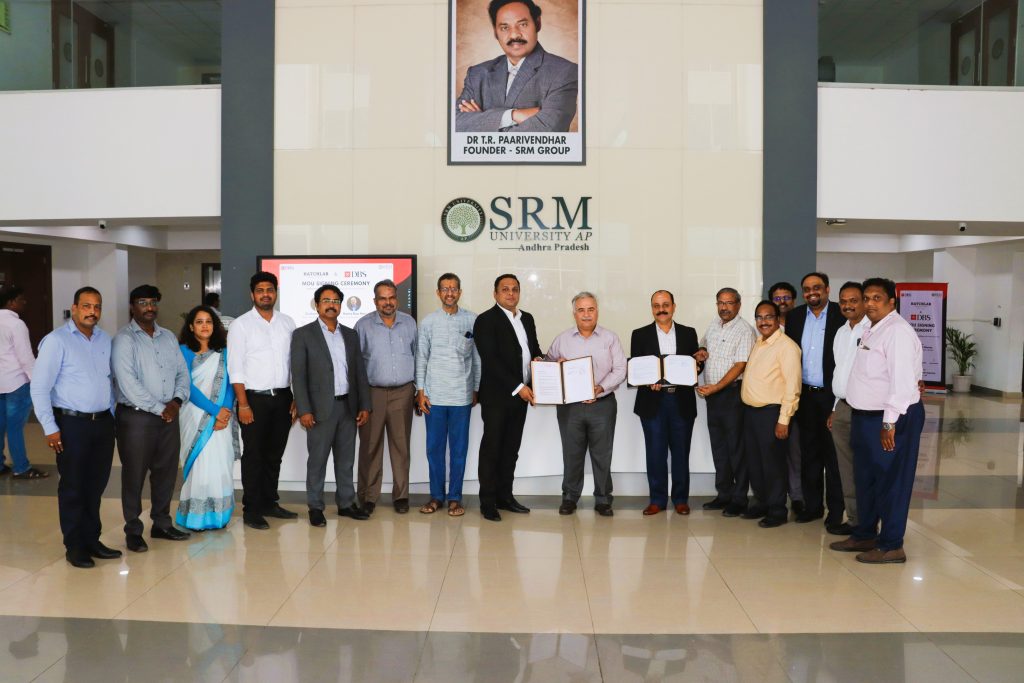
Hatchlab Research Centre, a technology and livelihood incubator, under The Directorate of Leadership, Innovation and Entrepreneurship has accomplished a milestone achievement as it joined forces with DBS Bank, India. A Memorandum of Understanding (MoU) was signed between the two parties in order to foster an entrepreneurial ecosystem in the varsity. The collaboration aims to empower startups and offer incredible opportunities for our entrepreneurial community at SRM University-AP.
Senior Vice Presidents, Mr Sushant Shetty and Mr Rama Rao Peri, other senior members of the leadership team from DBS Bank India, Prof. Manoj K Arora, Vice Chancellor, SRM University-AP ; Dr R Premkumar, Registrar, SRM University-AP and Mr Udayan Bakshi, Associate Director – Entrepreneurship and the leadership team of Hatchlab Research Centre graced the occasion.
Continue reading → - Harnessing Body, Mind and Spirit June 23, 2023
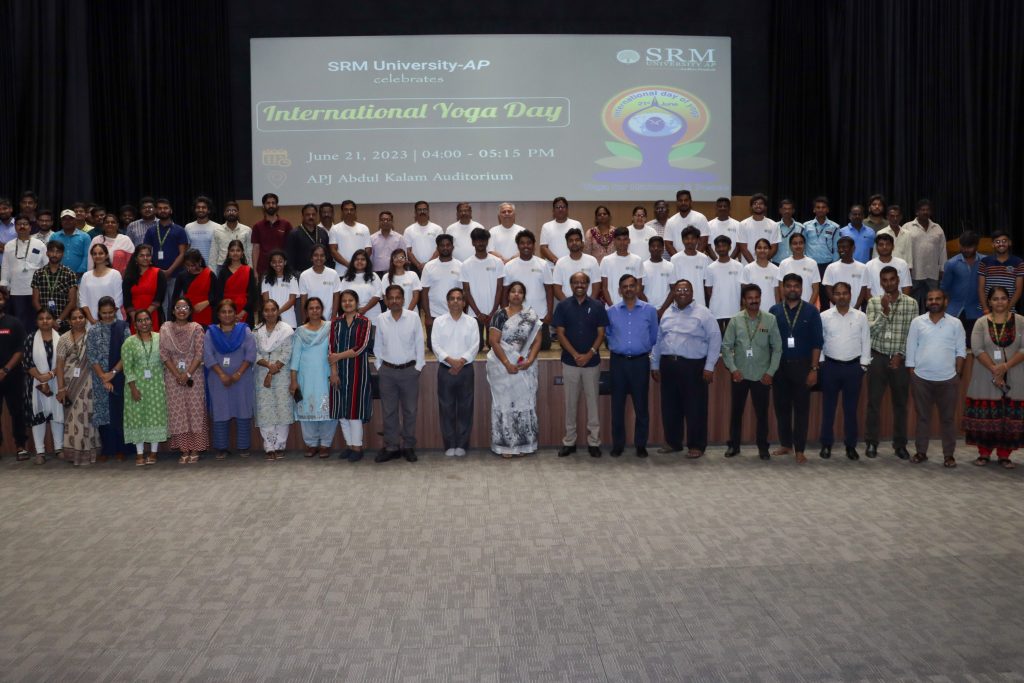
“Yoga is not just physical exercise. It is a union with the self, union with the universe. The universe lies outside and inside us. If we connect with ourselves, that means we are connecting with the universe” said Prof. Manoj K Arora, Vice Chancellor, SRM University-AP on the occasion of International Yoga Day Celebration held on June 21, 2023.
A yoga session was held under the joint venture of the Directorate of Sports and Directorate of Student Affairs. Prof. Arora, who participated as the Chief Guest in the programme addressed the staff and students through a session on Meditation and Wellness and announced the starting of a Yoga Club in the varsity.
Dr Abdul Mohimin, Assistant Director of Sports, spoke at length on the practice of yoga. Additionally, students of the varsity demonstrated dance yoga and clap yoga sessions, which left the audience invigorated. Dr R Premkumar, Registrar; Prof. Vishnupad, Dean-SLASS; Dr K Mohan, Director-ITKM; Dr Vijay Kumar Upadhyay, Director-Sports; Dr Manish Kumar, Director-Human Resources; Mr Pankaj Belwariar, Director-Communications; Mrs Suma N, CFAO; faculty; staff and students participated in the celebration.


